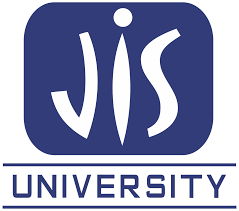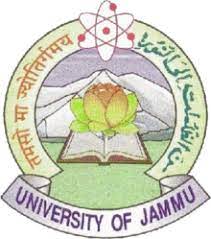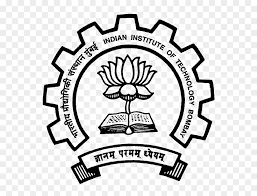The Ph.D. in Geo-Informatics and Remote-Sensing program is a master's degree that allows graduates to specialize in a certain area of geographic information science. These graduates are capable of developing theoretical-methodological bases and applying advanced techniques in environmental modeling and geospatial analyses. They have strong verbal skills and an excellent grasp of current affairs.
The curriculum of the doctoral degree consists of compulsory courses and elective courses. The latter allows students to specialize in their area of interest and write a thesis. The program covers the theoretical aspects of geospatial data acquisition, database systems, and mathematical analysis. The doctoral thesis will typically cover an application of geoinformatics technologies, cartographic semiotics, and atlas production.
The program is composed of two parts - an undergraduate course and an advanced research component. The masters' program consists of 120 credits and an individual dissertation. The MSc is an introductory course to the field and introduces the various technologies used in geospatial data analysis. It also covers topics such as climate change, human impacts on terrestrial ecosystems, biodiversity, and carbon cycle science.
The research scholars involved in the Ph.D. program should be able to think critically and develop solutions to complex problems. They should also have an understanding of the goals and needs of society. Ideally, they should have a deep knowledge of the latest developments in this field. The graduate should be able to conduct independent research and apply the findings to real-world applications. The research scholars should be able to integrate their knowledge with those of other fields.
Ph.D. in Geo-Informatics and Remote Sensing Eligibility
Candidates who want to take admission in Ph.D. must have a post-graduate degree in Geo-Informatics and Remote Sensing and its relevant discipline with at least 55% marks from a recognized university and must have passed the national level entrance examination or university level entrance examination. National level entrance exams like UGC NET / UGC CSIR NET / GATE / SLET or University entrance exam consisting of written tests and personal interviews.
The Benefits of a Ph.D. in Geo-Informatics and Remote Sensing
Having a Ph.D. in geo-informatics is not only beneficial for career prospects but also gives you an edge over others. Moreover, a Ph.D. degree enables you to enter the academic field at a higher level, while you can also obtain a high-paying position in the private sector. As an added bonus, you can also work in the government and in the private sector as a permanent lecturer.
The program focuses on theoretical and computational knowledge. This prepares students for advanced positions in the field. It is also essential for working in a team, as this helps you work more effectively. You can join any company and apply your knowledge to meet a client's needs. You can also apply your skills to help develop and enhance existing technology. A Ph.D. in Geo-Informatics and Remote Sensing can make you an expert in your field.
There are numerous job opportunities in the field of geo-informatics and remote sensing. Apart from advancing your career in the aerospace industry, the field has a booming economy. New sensors are being developed every year, which further increases the demand for skilled workers. In fact, remote sensing has become an integral part of our daily lives. According to a recent study, more than eighty percent of students in Germany use Google Earth. The application was downloaded over 100 million times in 2006, and only a few know more about the data behind it.
The Career and Job Opportunities of a Ph.D. in Geo-Informatics and Remote Sensing Graduate
After completing a Ph.D. in Geo-Informatica, the graduate is prepared to work in a variety of fields, namely government and private sector. In addition to the positions mentioned above, a geoinformatics graduate can pursue a career in a number of other areas, including environmental modeling, project management, and image analysis. The graduate has a comprehensive understanding of current trends and techniques in the field. He or she is also equipped to formulate and solve research questions with a great deal of creativity.
A Ph.D. in Geo-Informatica graduates can find employment in several industries, including the defense and aerospace sectors. Other potential career paths include academia and research. Ph.D. graduates can become researchers at leading research institutions, hold top-level management positions, and work as a consultant in their field. There are also a few academic institutes that have established centers for Remote Sensing and Geographic Information Systems.
A geography Ph.D. graduate is highly relevant to the job market. There are many opportunities in government and academia. He or she can work in universities and research institutions or for private companies that need to collect and analyze spatial data. In addition, he or she can enter the world of business in the form of a scientist. This will require an individual to have a solid master's degree.
The Future Scope of Ph.D. in Geo-Informatics and Remote Sensing
With the advancement in technology, the role of geoinformatics is growing. Apart from ensuring environmental protection and conservation, it also helps in streamlining various operations in the field. By using satellite data, geoinformatics can help in analyzing geological, social, and temporal factors, which make the field more important than ever. This makes it a promising career option for students.
The field of geoinformatics is already an established one, encompassing aspects of geology, geography, and informatics. Many industries use geoinformatics in their work, including in-car navigation, aviation, and infrastructure development. A Ph.D. in this field can open doors to a lucrative career in the defense and aerospace sectors, agriculture, and infrastructure development.
As a graduate, you can expect a bright future in the field. You can always contribute to fulfilling the needs of your profession. It is essential to understand the field's potential. The field is fast developing, and it is a field that can grow at a rapid pace. And if you're a student, it's never too late to apply for a Ph.D.
As the field of geo-informatics grows, there are more opportunities than ever before. The field is becoming more popular, and job opportunities in this field are becoming more abundant. It is a field that is widely accepted, and many universities and colleges offer degrees in this field. And it's a growing career choice. A Ph.D. in this field will help you advance in your chosen field, and gain valuable expertise.
Ph.D. Research Programme duration
The Ph.D. in Geo-Informatics and Remote Sensing course is a minimum of 3 years and a maximum of 5 duration. This depends on the university offering the course.
Fees for research program for Geo-Informatics and Remote Sensing
The average fee for Ph.D. in Geo-Informatics and Remote Sensing degree is between INR 50000 and INR 500000.
 5 Years
5 Years
 PhD
PhD
 Research
Research


















 back
back